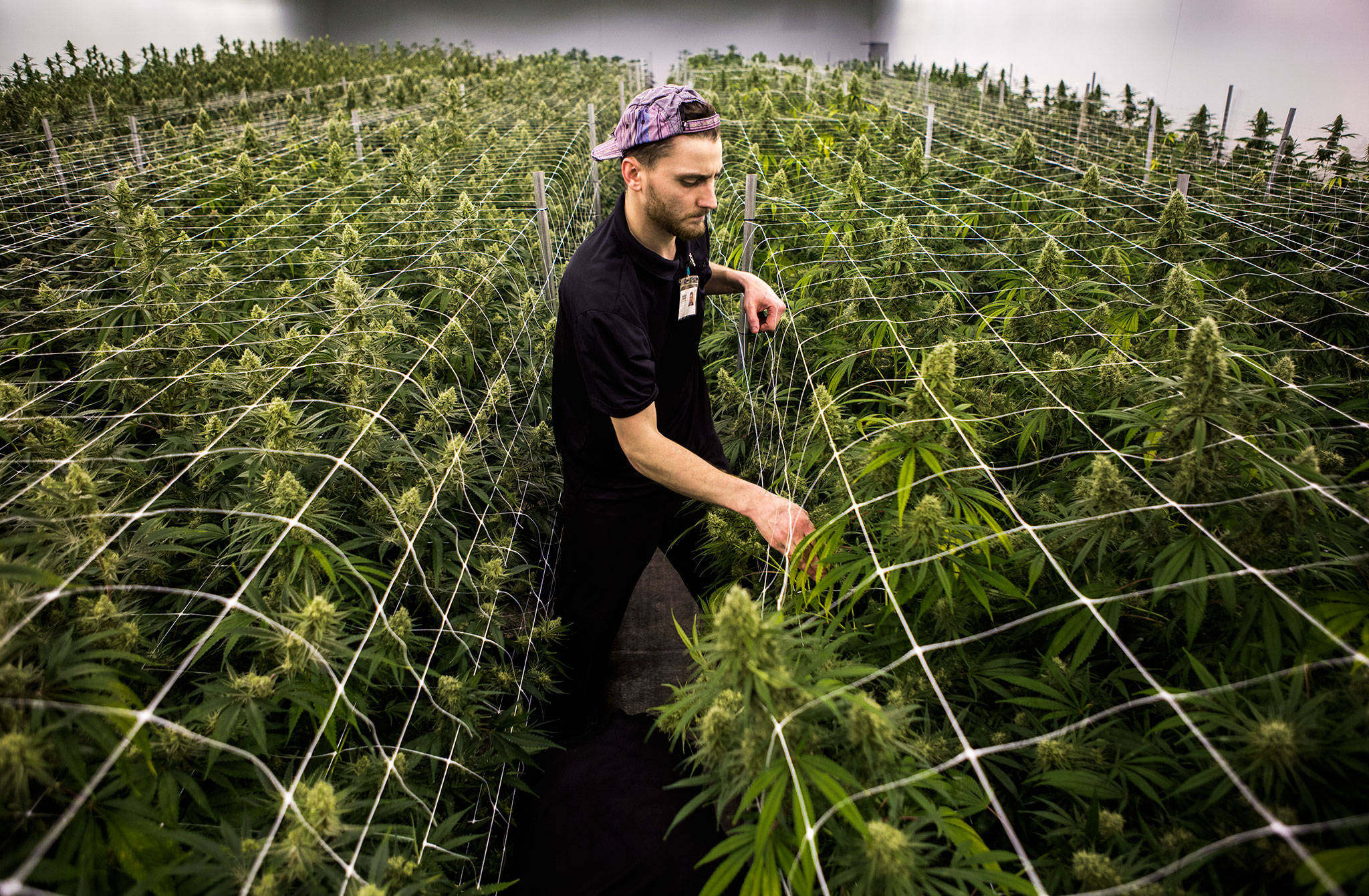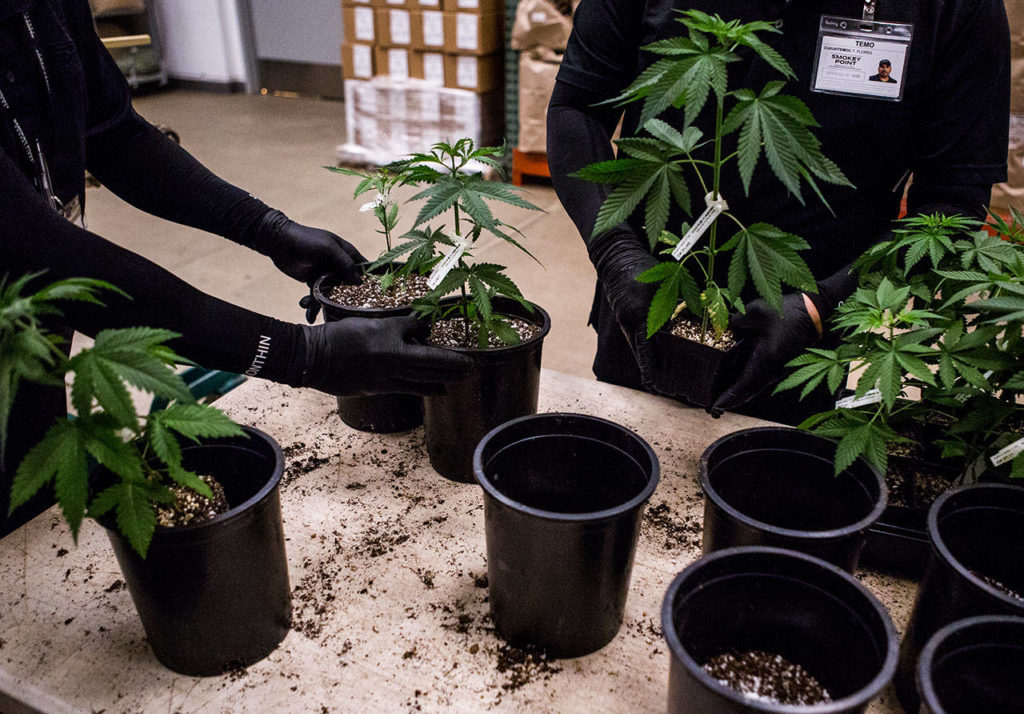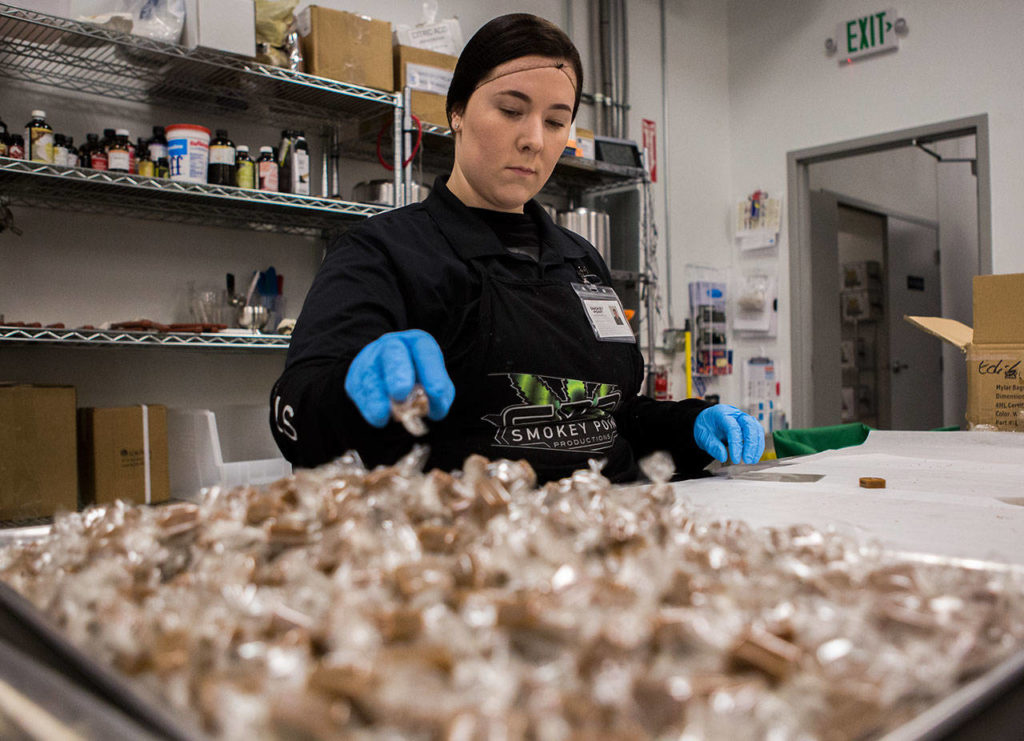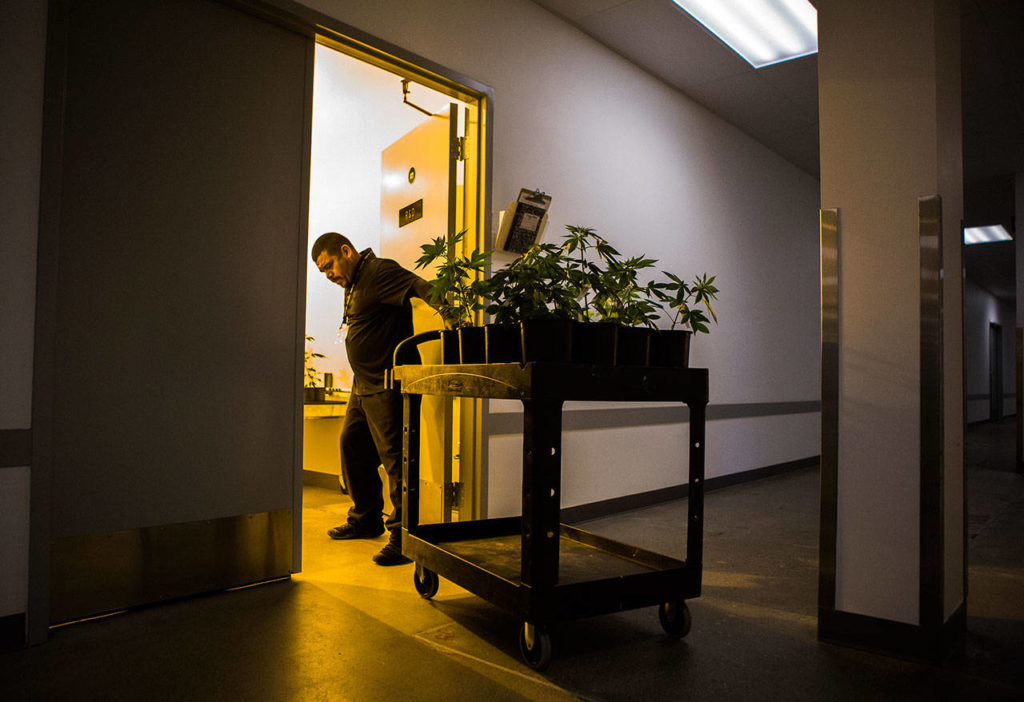ARLINGTON — Four strikes and you’re out — that’s how Washington state law treats a cannabis business that’s been hit with four minor violations in three years.
The Clone Zone, an Arlington marijuana grower that employs 30 workers, faces a state-mandated shutdown after receiving four, non-criminal violations between 2015 and 2017.
Based on those infractions, a judge determined Friday that the Washington State Liquor and Cannabis Board can go forward with its plan to revoke the company’s license.
The Clone Zone has 10 days to put things in order.
The family-owned business acknowledges “clerical errors,” and is appealing two of the four violations.
The Liquor and Cannabis Board says those are the rules. It’s up to the Legislature to change them.
“It’s our job to ensure that license-holders are in compliance,” board spokesman Mikhail Carpenter said.
Marijuana is still federally illegal. If it were legal nationwide, the state regulations might be less stringent, Carpenter said.
The board provided copies of the violations but didn’t comment on them.
The Clone Zone received verbal and written warnings, according to board documents.
Last year, the board cancelled the licenses of more than 25 producers, processors and retailers, Carpenter said.
State liquor laws are similar — a business can have its license revoked after four violations in two years.
The consequences of minor infractions, which don’t involve criminal activity, are a threat to businesses statewide that are part of a new industry that’s still trying to work out the kinks.
The Clone Zone is part of a family of businesses that includes Smokey Point Productions, which does the staffing, and Rolling Farms, a new marijuana production facility the length of two football fields.
Their products, which are sold by retailers across the state, generate more than $1.5 million in monthly tax revenue for the state, said Emily Lade, the company’s chief financial officer.
Together, the three companies employ 126.
“These are family wage jobs, everyone earns $15 or more,” Lade said.
Smokey Point and Rolling Farms depend on The Clone Zone for production of its premium products.
“Everything from The Clone Zone is processed here,” said Lade standing inside the pristine, high-tech extraction lab at Rolling Farms.
Four years ago, Dale Silverman moved with his wife and three children to Washington to work for the company, based on “its great reputation,” he said.
It was a career change for Silverman, who went from extraction mining in Utah to extracting marijuana’s essential compounds.
“Shutting down The Clone Zone would take away half my job,” Silverman said.
Connor Cave, an Arlington High School graduate, worries that closure would “have a domino effect and take down the other two businesses.”
Cave designed the company’s computer tracking system, to satisfy state rules that require each marijuana plant be labeled with its own 16-digit ID tag.
The tagging process is central to the state’s “seed-to-sale” tracking system intended to prevent legal marijuana plants and products from being illegally diverted and sold to black market sources.
In theory, every marijuana product in the state — even that infused chocolate bonbon — can be traced back to the plant from which it was produced.
At least two of the administrative violations were simple tracking errors, Lade said.
One involved a dozen too-tall plants that hadn’t been tagged. A plant must be ID’d as soon as it reaches eight inches in height.
“These were in a room of 1,000 plants,” Lade said.
The Clone Zone began tagging plants at four-inches tall.
In another instance, they were dinged when an enforcement officer found a plant with a smudged tag “in a room containing 360 flowering plants,” Lade said.
The fix there was to use more durable tags that wouldn’t fade.
“These were mistakes, not a crime,” Lade said.
Brian Lade, president of Smokey Point Productions (Emily Lade’s brother) called the process unfair.
“I understand the intent of the law to prevent black market diversion, but not tagging a couple of plants? That doesn’t merit a shutdown,” he said.
Pioneer businesses that entered the market early on were guinea pigs, and shouldn’t be punished for helping get the industry and its rules off the ground, he added.
The Clone Zone’s supporters include state representatives and Arlington’s mayor.
In a letter on Jan. 2 to the Liquor and Cannabis Board, Arlington Mayor Barbara Tolbert asked board members to suspend the final order revoking The Clone Zone’s license.
“A few administrative violations resulting in fines and implementation of more stringent best practices should not add up to the closure of a thriving business,” Tolbert wrote.
Sen. Guy Palumbo, D- Maltby, and Rep. Derek Stanford, D-Bothell, and two other legislators contacted the board’s executive director Rick Garza, urging him to “suspend any cancellation proceedings for licensees that have received four administrative violations in a three-year period for the duration of the 2019 legislative session.”
“It’s really unfortunate to have a family business in Arlington, a rural area, have to close,” Palumbo said Friday.
After the 2012 marijuana reform law, Initiative 502, went into effect, “everybody was trying to figure it out,” Palumbo said.
On Friday, Stanford said he had spoken to board director Garza who “communicated an intent to honor that letter.”
In the House, a bipartisan group of legislators, including Stanford and Rep. Brandon Vick, R-Vancouver, introduced House Bill 1237 to change the “original rules around penalties for violations, including minor administrative issues.”
The bill would replace administrative violations with written warnings, and put greater emphasis on education around compliance.
New rules are needed because license holders and regulators have made mistakes — that’s to be expected in an emerging industry, Stanford said.
As long as those businesses didn’t pose a threat to public health and safety, they shouldn’t “face punitive consequences for mistakes made during this initial phase of the industry.”
Those minor violations shouldn’t constitute “grounds for completely terminating a business,” Stanford said.
There’s a difference between administrative issues and “selling cannabis into the illicit market or selling to a minor,” he said.
The bill includes an amnesty provision for administrative violations that occurred before June 30, 2018.
But that part isn’t retroactive.
A business, such as The Clone Zone, that’s already been issued a final order to close is excluded.
And while the Liquor and Cannabis board may consider putting license cancellations on hold while the Legislature deliberates, it’s likely too late for The Clone Zone.
The board has made “a distinction between businesses where a final order of cancellation has been entered and those where one hasn’t,” Stanford said.
“I am very concerned about the situation with The Clone Zone,” the Bothell lawmaker said. “They’ve responded. They’ve tried to come into compliance. They’ve fixed the glitches.”
Janice Podsada; jpodsada@heraldnet.com; 425-339-3097; Twitter: JanicePods.
Talk to us
> Give us your news tips.
> Send us a letter to the editor.
> More Herald contact information.




























